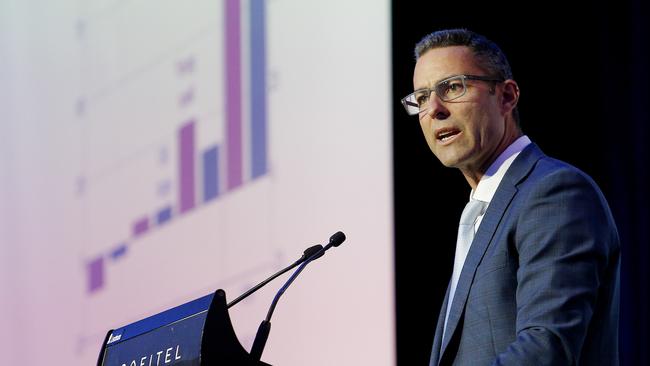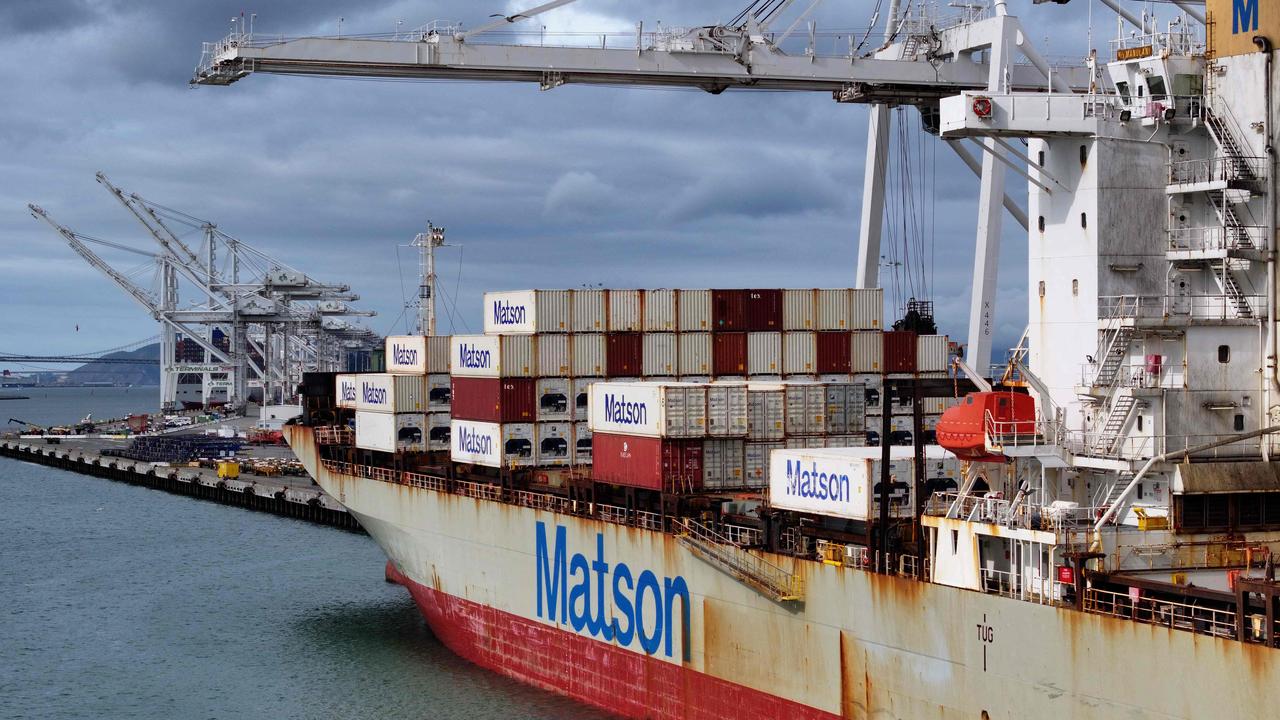Get your liquidity act together in case of unexpected financial shock, RBA tells super funds
As the super sector’s role in short-term bank funding and foreign exchange markets grows, the RBA wants funds to improve their liquidity risk management to fortify against potential shocks.

Business
Don't miss out on the headlines from Business. Followed categories will be added to My News.
The Reserve Bank has told super funds to improve their management of liquidity risks, as the sector plays an increasing role in short-term bank funding and foreign exchange markets in Australia.
In comments at a conference of super fund chairs, RBA assistant governor (financial system) Brad Jones said it was not the role of the central bank to bail them out of any liquidity crisis.
“What we would prefer, and what APRA would prefer, is that institutions are building their liquidity risk-management capabilities in a very deliberate and careful way that they accommodate a range of potential shocks. Not putting yourself in a position where you have to rely on the presumption that someone else will bail you out of your position would be our advice,” he said.
Mr Jones said the RBA was increasingly scrutinising the role of super funds in the broader financial system, reviewing the potential for “a systemic liquidity shock” to be transmitted to the broader Australian economy through the funds.
He said super funds in Australia now owned between 35 and 45 per cent of short-term bank debt and had some $400bn of hedging positions in the swap market.
“At the time of the Global Financial Crisis, super funds collectively owned 5 per cent of short-term bank debt in the country,” he said.
“… There is more connectedness in the financial system because of the growth of the (super fund) industry.
“We are doing a lot of analytical work on the role of a systemic liquidity shock which is generated from outside the system, where super funds inadvertently became a propagator of that stress.”
Mr Jones said it was generally believed that the Australian super fund sector had played an important role in helping the broader financial system through recent financial crises.
He said there were “important structural features” of the super fund sector which should mean that it is well placed to act as a countercyclical, stabilising force in the financial system – including its long-term investment horizons and its lack of leverage.
But it would be “imprudent” for the central bank to assume that this would always be the case, given the increasing size of the super fund system and its role in the economy, such as its increased holdings of short-term bank debt.
He said the RBA did not see the funds as being the originator of shocks to the financial system, but it was looking at the potential for the industry to “inadvertently propagate stress to the system”.
Mr Jones said this could happen if there were a combination of stocks such as a “large market shock which undermines market confidence” and an “unexpected change in policy settings (which meant) the system is no longer closed”.
Mr Jones’ comments were a reference to federal government moves during the pandemic to allow emergency access to super.
The industry feared large withdrawals at a time when financial markets and fund assets were under pressure.
The Coalition has vowed to allow first-home buyers to access super if it wins the next federal election – another sign that governments could allow more access to super fund accounts.
Mr Jones said liquidity risk management in the super fund industry had improved since the Covid-19 crisis but it had been “very uneven”.
“We would like to raise both the average level of sophistication and robustness around liquidity management and shrink the gap between the best and worst experience,” he said.
“What we have picked up from our liaison (with super funds) is that some institutions are doing this very well and there are others where their practices are still a fair way short of where they should be from a prudence perspective.”
He said funds should also consider what might happen if their peers reacted in the same way during a crisis. “Prevention trumps cure,” he said.
Mr Jones said the RBA was paying attention to the hedging practices of super funds given their growing investments offshore and their potential role in the foreign exchange market in Australia.
He said super fund foreign exchange hedging books were now about $400bn, and about 40 per cent of offshore assets now held by super funds were being hedged.
Mr Jones said there were concerns that an external shock could bring with it large movements in foreign exchange markets which could put more pressure on super fund liquidity.
He said the RBA was assessing the implications of the super fund sector becoming a larger player in the FX swap market.
“What implications does that have for market functioning and supply and demand imbalances in the normal course of events?” Mr Jones said.
“Right now, our assessment is that flows through the swap market are fairly well balanced between what this community is doing and what other parts of the financial system are doing.
“But that may not necessarily (always) be the case, which is why we are doing a lot of work in this space.”
Originally published as Get your liquidity act together in case of unexpected financial shock, RBA tells super funds



